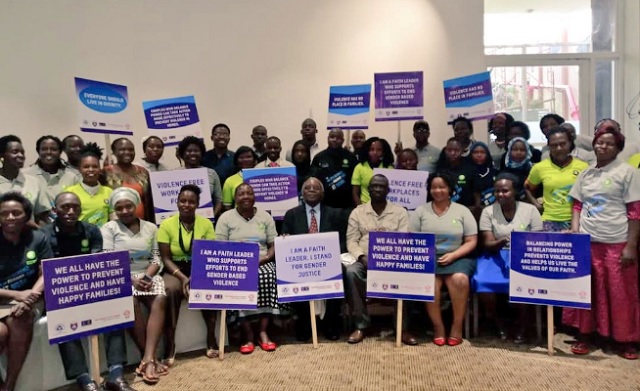
Kampala, Uganda | JULIUS BUSINGE | The Uganda Women’s Network (UWONET) wants government, civil society and other partners to invest more resources in the fight against Gender Based Violence (GBV).
They said in a joint press statement issued at their secretariat in Ntinda on Dec.10, that they are deeply concerned that the informal sector, which employs more than 80% of the Ugandan women, remains largely unregulated and characterized by non-compliance to existing national labour policy and legal frameworks.
This, they say has left women working in markets, on streets as street vendors, at home as domestic workers, in the horticulture sector, unprotected from workplace harassment and violence.
“…impunity, a culture of silence and stigma has allowed violence against women and girls to escalate to unacceptably high proportions,” they said in part.
Uganda has a number of legal and policy tools that are supposed to deal with this inhuman situation including the 1995 Constitution, the Employment Act of 2006, The Workers Compensation Act and the Attendant Regulations, Uganda Gender Policy 2007 and more but their implementation is still lacking, according to UWONET.
To support this argument, they quoted a 2017 Uganda Police Crime report where, of the 1, 335 rape cases reported, only 396 were taken to court, six resulted into convictions and 375 are still pending by press time the report was published.
In addition, they said that the 2016 Uganda Demographic Health Survey revealed that women in Uganda are more than twice as likely to experience sexual violence as men and that more than one in five women aged between 15-49 (22%) report that they have experienced sexual violence.
UWONET’s call was part of what they called 16 days of activism against GBV campaign 2018 organised under the theme ‘end gender based violence in the world of work’. The campaign began on Nov.25.
 The Independent Uganda: You get the Truth we Pay the Price
The Independent Uganda: You get the Truth we Pay the Price





